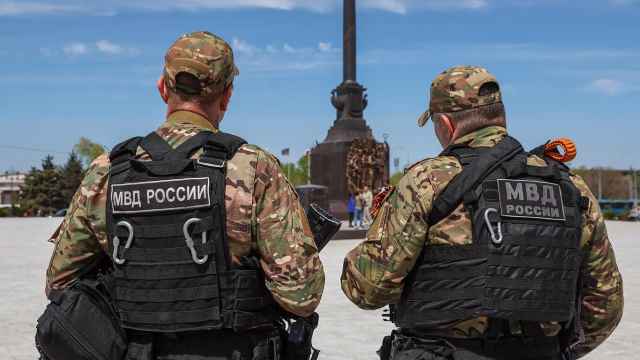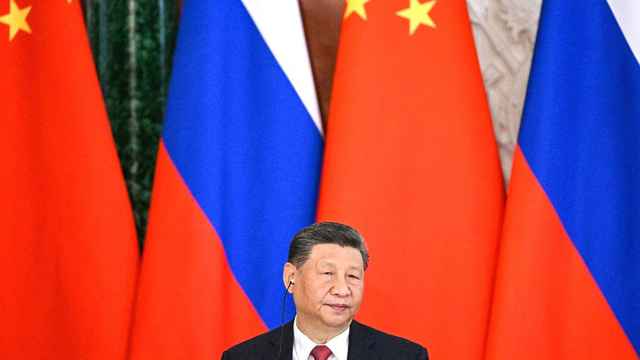Despite a severe drought, the president backs a plan to increase grain exports.
VLADIVOSTOK —President Vladimir Putin saidRussiais sticking to its plan to boost grain output and expand its role in world markets despite struggling with a severe drought that has revived memories of a 2010 grain export ban.
Grain markets have been supported by persistent suspicions that the current drought, which has slashed grain yields by more than a quarter, could prompt a snap decision by Putin to restrict grain exports.
The 2010 ban led major consumers to question the reliability of supply, and producers fear that new restrictions would do irreparable damage to Russia's reputation in world markets.
In a signal that the Kremlin is, on the contrary, seeking a bigger role in world markets, Putin saidRussiawas sticking to ambitious plans to increase grain production, giving exporters a larger potential surplus for delivery to major consumers such asEgyptandTurkey.
Setting a target of 120 million to 125 million tons of grain output by 2020, an increase of about a quarter from last year's 94-million-ton harvest, which was slightly above multiyear averages, Putin saidRussiashould be able to export 35 million to 40 million tons.
"Russiawill make its contribution to stable food supply," Putin said in a speech to businessmen on the eve of theAsia-PacificEconomic Cooperation summit in Vladivostok.
They were Putin's first comments on agriculture since the scale ofthe drought damage became clear at the end of July.
He said nothing aboutweak crop prospects for the current year on Friday. Combined with the worst U.S. drought in more than half a century, poor export prospects from theBlack Seabreadbasket pushed grain prices to record levels this summer, raising the chance of a repeat of the crisis four years ago that provoked riots around the world.
Putin said the current surplus is 15 million to 20 million tons, potentially far more than the official forecast of 10 million to 14 million tons. Analysts believe it could be 10 million or less.
Meanwhile,APECleaders were poised to reject limitations on food exports, saying open markets help secure food supplies, according to a draft of the leaders' statement, which is to be issued at the end of the summit.
"Recognizing that bans and other restrictions on the export of food may cause price volatility, especially for economies that rely on imports of staple products, we reiterate our pledge against protectionism," the draft communique said.
"We are determined to ensure fair and open markets, reduce price volatility, and establish greater regional and global food security and confirm our commitment to develop food markets infrastructure, reduce post-harvest losses along the entire food supply chain."
European wheat futures rose Friday on spillover support from a rally in U.S. prices Thursday. Operators assumed that importers would increasingly turn to the United States andwestern Europeonce supplies from the drought-hitBlack Searegion run low.
Related articles:
A Message from The Moscow Times:
Dear readers,
We are facing unprecedented challenges. Russia's Prosecutor General's Office has designated The Moscow Times as an "undesirable" organization, criminalizing our work and putting our staff at risk of prosecution. This follows our earlier unjust labeling as a "foreign agent."
These actions are direct attempts to silence independent journalism in Russia. The authorities claim our work "discredits the decisions of the Russian leadership." We see things differently: we strive to provide accurate, unbiased reporting on Russia.
We, the journalists of The Moscow Times, refuse to be silenced. But to continue our work, we need your help.
Your support, no matter how small, makes a world of difference. If you can, please support us monthly starting from just $2. It's quick to set up, and every contribution makes a significant impact.
By supporting The Moscow Times, you're defending open, independent journalism in the face of repression. Thank you for standing with us.
Remind me later.





